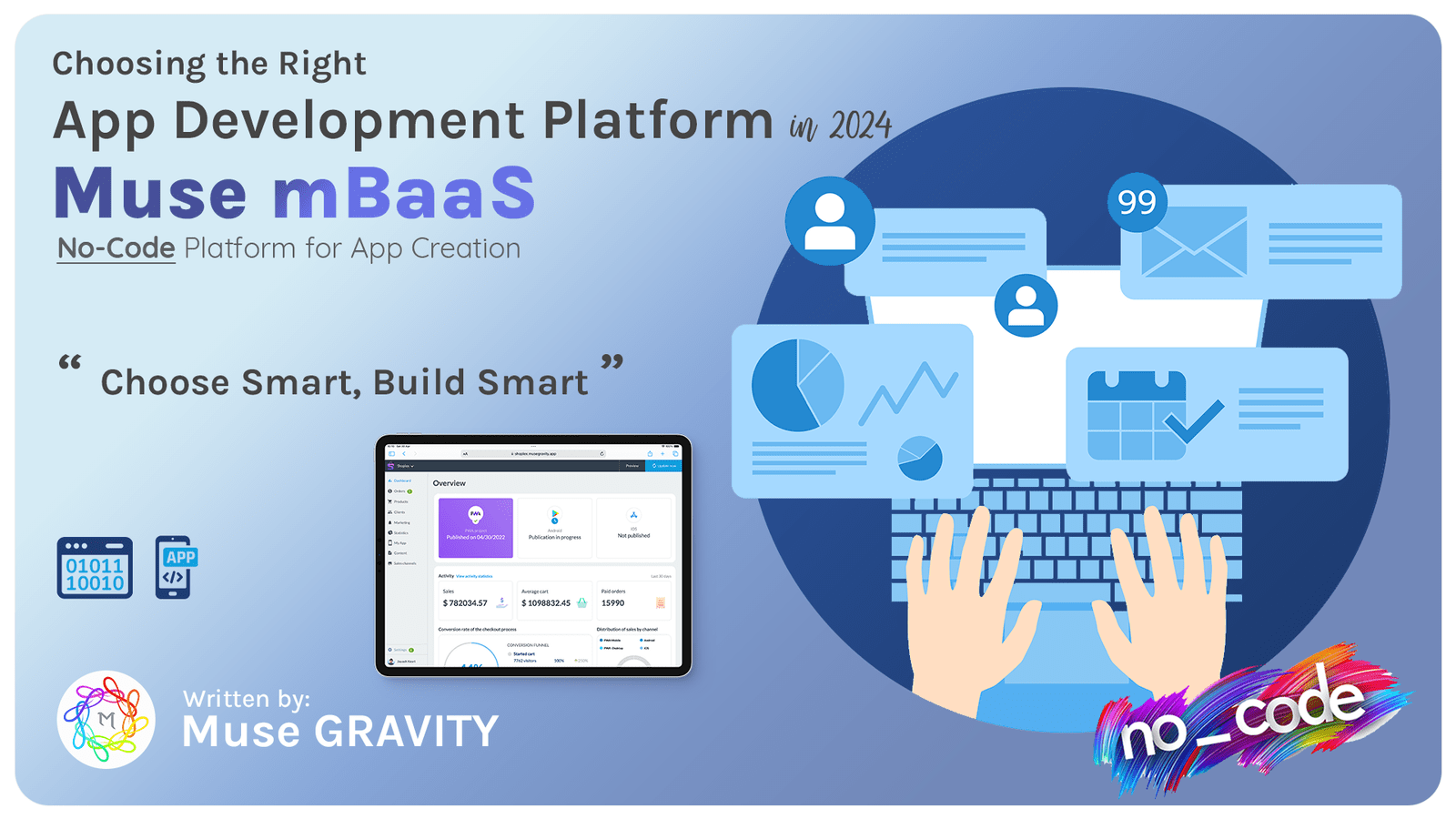
In the ever-evolving digital landscape, mobile apps have become the cornerstone of business growth and customer engagement. However, embarking on the journey of mobile app development can be daunting, especially when it comes to choosing the right platform. It's a decision that can shape the future of your app, your brand, and your user experience. But fear not, for in this comprehensive guide, we will unveil the 12 critical factors to consider before selecting a mobile app development platform. From understanding your target audience to considering budget constraints, from weighing technical capabilities to ensuring scalability - we've got you covered. Whether you're a startup founder, a business strategist, or an aspiring app developer, this blog promises to equip you with the insights you need to make an informed decision. So, let's embark on this journey together and unlock the secrets to selecting the perfect mobile app development platform for your project, one that not only meets your current needs but also paves the way for future success. Get ready to transform your app vision into a reality with the wisdom you're about to gain! Before we talk about 12 Things to Keep in Mind while Choosing the Right Mobile App Development Platform, it is essential to know what a Mobile App development platform is.
What Is a Mobile Application Development Platform?
A Mobile Application Development Platform (MADP) provides tools and services for building, testing, and deploying mobile apps. It supports cross-platform development, enabling the creation of apps for multiple operating systems from a single codebase. MADPs include:
- Integrated development environments.
- Pre-built libraries.
- APIs.
- Backend services like cloud storage.
- Features for user management.
They offer testing and debugging tools, assist in app deployment and publishing, and provide maintenance and update capabilities. Additionally, MADPs ensure app security and compliance with data protection regulations.
12 Things to Keep in Mind while Choosing the Right Mobile App Development Platform:
1. Target Audience:
Understanding your target audience is paramount. Knowing their preferences, the devices they use, and their geographic location can significantly influence your choice of platform. If your audience predominantly uses Android, focus there or consider a cross-platform solution for a more diverse user base.
2. Type Of App:
The nature of your app - whether it's for Business, Education, or eCommerce - dictates the platform's features and capabilities you'll need. Some platforms are better suited for complex, feature-rich applications, while others cater to simpler, more straightforward apps.
3. Technical Expertise:
Your team's technical skills are crucial. If you lack in-house development expertise, platforms offering no-code or low-code solutions can be advantageous. Conversely, if you have skilled developers, you might opt for platforms that offer more customization and coding options.
4. Budget:
Budget constraints play a critical role. Some platforms may offer lower upfront costs but higher long-term expenses due to maintenance and updates. Conversely, more expensive platforms might offer more comprehensive features that reduce future costs.
5. MVP (Minimal Viable Product):
Starting with an MVP (Minimum Viable Product) allows you to test your app idea with minimal risk. Choose a platform that enables you to quickly build and iterate based on user feedback, ensuring your final product is well-aligned with market needs.
6. Scalability and Flexibility:
Your chosen platform should grow with your business. It should handle increasing user numbers and data without performance loss. Flexibility in adapting to new features, technologies, and user requirements is also vital.
7. Features and Functionality:
Assess the essential features and functionalities your app requires. This includes data synchronization, offline capabilities, push notifications, and more. The right platform should offer all the necessary tools to build and manage these features efficiently.
8. UI and UX:
The user interface (UI) and user experience (UX) are crucial for app success. A platform that allows for the creation of intuitive, user-friendly, and visually appealing interfaces can significantly impact user retention and satisfaction.
9. Maintenance and Support:
Post-launch support is as important as development. Choose a platform that offers robust maintenance and support services to ensure your app stays updated, secure, and bug-free.
10. Integration Capabilities :
The ability to integrate with other systems and third-party services (like social media, payment gateways, or analytics tools) can extend your app's functionality and provide a more seamless user experience.
11. Compliance and Security:
Ensuring data protection and meeting regulatory requirements is non-negotiable. Your platform should comply with industry standards and regulations, especially if you're handling sensitive user data.
12. Time to Market :
Speed is crucial in the competitive app market. Platforms that offer rapid development capabilities can help you launch your app faster, which is often vital for capitalizing on market trends or meeting business timelines.
In the digital age, selecting the right mobile app development platform is a balancing act of understanding your audience, aligning with your app's purpose, and juggling technical requirements, budget constraints, and future scalability. Prioritizing user experience, ensuring robust support and maintenance, integrating seamlessly with other systems, and maintaining compliance and security are essential. Fast-tracking your app's market entry with an MVP approach can lead to a successful, secure, and user-centric mobile application.
Muse mBaaS: Revolutionizing the Mobile App Development Platform Landscape
In the realm of mobile app development platforms, Muse mBaaS emerges as a revolutionary solution, particularly for those who are venturing into the mobile app space without extensive coding knowledge. It perfectly aligns with the need to understand your target audience and the type of app you wish to develop. Whether you're targeting a business-oriented audience or aiming to launch an eCommerce platform, Muse mBaaS offers specialized solutions that cater to these specific domains. This platform simplifies the process by providing a no-code approach, which is particularly beneficial for individuals or businesses with limited technical expertise. By offering a user-friendly interface and an AI-driven development process, Muse mBaaS ensures that the complexities of app development do not hinder the creative flow of its users. This approach not only democratizes the app development process but also opens up a realm of possibilities for those who previously found the technical barriers too daunting to overcome.
















